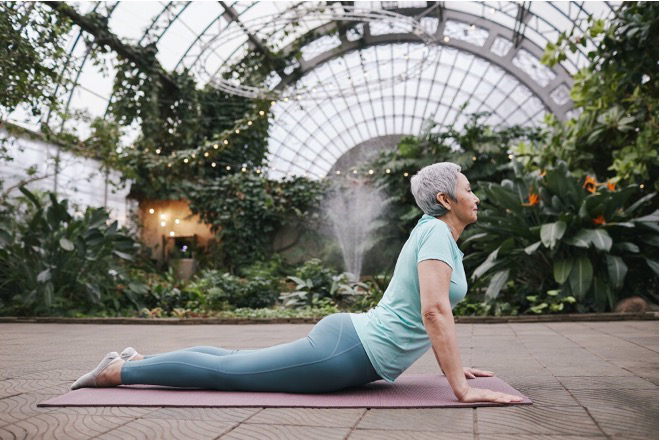|
Although there are many types of arthritis, osteoarthritis (OA) is the most common type affecting more than 4 million Canadians, that’s 1 in 7 adults. OA is known as a condition that affects cartilage only, but in reality the entire joint is affected including the surrounding muscles and ligaments. This can be a result of: · Healthy joints are being exposed to heavy loads over a long period of time, or · Unhealthy joints that cannot handle normal loads. You often hear osteoarthritis described as ‘wear and tear’ of the joint. This statement is misleading as the joint actually needs movement to stay healthy and receive nutrients. There is no set recipe for how OA develops in joints but some risk factors that increase chances of developing OA include: · Increasing age · Female sex · Family history · Previous joint injury · Overweight or obesity · Occupations with repetitive stress on joints · Muscle weakness surrounding joints · Sedentary lifestyle There are a lot of myths and misconceptions about OA. o OA is caused by “wear and tear”. o As discussed above, there is no single cause for OA and there are many factors that contribute to the risk for developing OA. o Exercise and loading of the joints will cause further damage and a painful joint should be rested. o This statement is misleading as the joint actually need movement to stay healthy and receive nutrients. Light or moderate physical activity can protect the joint by increasing strength of the muscles surrounding the joint. Low impact activity such as swimming, walking, Tai Chi and yoga are recommended. o Knee and hip replacements are inevitable. o Surgery is not the only option, and it is not always appropriate management for everyone with OA. As discussed further in this blog your health care providers use education, lifestyle and exercise to manage OA. Everyone has different experiences with OA and symptoms aren’t the same, therefore treatment plans aren’t the same. Treatment is used to reduce symptoms and improve function of the joint. Interventions are key for those living with osteoarthritis. The good thing is that there is extensive research on how to help you get back to enjoying your life and being physically active. High quality evidence suggests that exercise is the best intervention for individuals with OA. Joints are nourished through moving and weight bearing and that movement acts as a pump to bring fluid and nutrients into the joint needed to maintain the cartilage. This can reduce pain and help get you back to your daily activities. There are many other interventions that your health care providers at Dalhousie Health and Wellness can use during treatments with you to help manage your OA symptoms. Together you and your chiropractor can work through a detailed history and assessment of your symptoms, education and information about OA, exercises to relieve pain and increase joint function, weight management and passive treatments including soft tissue work, mobilizations, manipulations and acupuncture can be provided. Any questions about OA and how you can get back to the activities you love, contact Dalhousie Health and Wellness! Dr. Stav
0 Comments
Leave a Reply. |
Archives
May 2024
|


 RSS Feed
RSS Feed